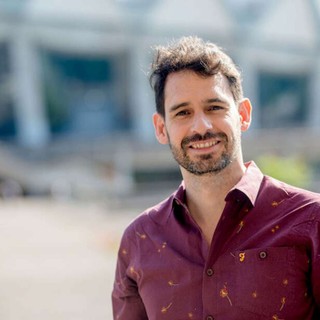
Episode #477: Why Curiosity Isn’t Just a Virtue—It’s Our Oldest Technology
Crazy Wisdom
Intro
This chapter delves into the importance of questioning in Western civilization and its impact on philosophy and culture. The guest discusses how cultural contexts influence the formulation and understanding of questions, along with their historical and philosophical significance in the pursuit of truth.
In this episode, Stewart Alsop speaks with Edouard Machery, Distinguished Professor at the University of Pittsburgh and Director of the Center for Philosophy of Science, about the deep cultural roots of question-asking and curiosity. From ancient Sumerian tablets to the philosophical legacies of Socrates and Descartes, the conversation spans how different civilizations have valued inquiry, the cross-cultural psychology of AI, and what makes humans unique in our drive to ask “why.” For more, explore Edouard’s work at www.edouardmachery.com.
Check out this GPT we trained on the conversation
Timestamps
00:00 – 05:00 Origins of question-asking, Sumerian writing, norms in early civilizations, authority and written text
05:00 – 10:00 Values in AI across cultures, RLHF, tech culture in the Bay Area vs. broader American values
10:00 – 15:00 Cross-cultural AI study: Taiwan vs. USA, privacy and collectivism, urban vs. rural mindset divergence
15:00 – 20:00 History of curiosity in the West, from vice to virtue post-15th century, link to awe and skepticism
20:00 – 25:00 Magic, alchemy, and experimentation in early science, merging maker and scholarly traditions
25:00 – 30:00 Rise of public dissections, philosophy as meta-curiosity, Socratic questioning as foundational
30:00 – 35:00 Socrates, Plato, Aristotle—transmission of philosophical curiosity, human uniqueness in questioning
35:00 – 40:00 Language, assertion, imagination, play in animals vs. humans, symbolic worlds
40:00 – 45:00 Early moderns: Montaigne, Descartes, rejection of Aristotle, rise of foundational science
45:00 – 50:00 Confucianism and curiosity, tradition and authority, contrast with India and Buddhist thought
50:00 – 55:00 Epistemic virtues project, training curiosity, philosophical education across cultures, spiritual curiosity
Key Insights
- Curiosity hasn’t always been a virtue. In Western history, especially through Christian thought until the 15th century, curiosity was viewed as a vice—something dangerous and prideful—until global exploration and scientific inquiry reframed it as essential to human understanding.
- Question-asking is culturally embedded. Different societies place varying emphasis on questioning. While Confucian cultures promote curiosity within hierarchical structures, Christian traditions historically linked it with sin—except when directed toward divine matters.
- Urbanization affects curiosity more than nationality. Machery found that whether someone lives in a city or countryside often shapes their mindset more than their cultural background. Cosmopolitan environments expose individuals to diverse values, prompting greater openness and inquiry.
- AI ethics reveals cultural alignment. In studying attitudes toward AI in the U.S. and Taiwan, expected contrasts in privacy and collectivism were smaller than anticipated. The urban, global culture in both countries seems to produce surprisingly similar ethical concerns.
- The scientific method emerged from curiosity. The fusion of the maker tradition (doing) and the scholarly tradition (knowing) in the 13th–14th centuries helped birth experimentation, public dissection, and eventually modern science—all grounded in a spirit of curiosity.
- Philosophy begins with meta-curiosity. From Socratic questioning to Plato’s dialogues and Aristotle’s treatises, philosophy has always been about asking questions about questions—making “meta-curiosity” the core of the discipline.
- Only humans ask why. Machery notes that while animals can make requests, they don’t seem to ask questions. Humans alone communicate assertions and engage in symbolic, imaginative, question-driven thought, setting us apart cognitively and culturally.


